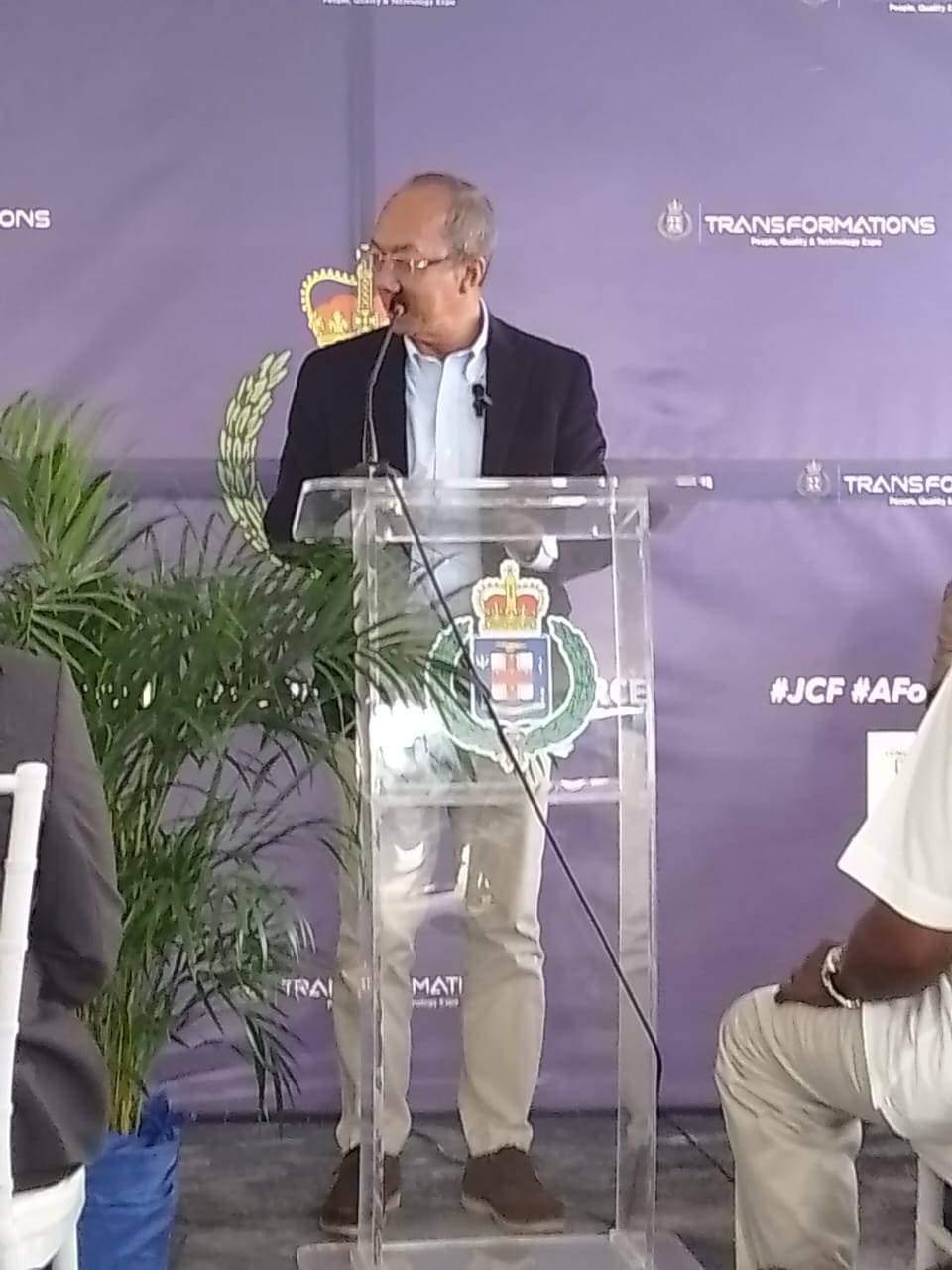MONTEGO BAY, April 17 (JIS):
Jamaica’s law-enforcement landscape is undergoing a significant transformation, with the digitisation of police stations across the island in progress.
The recent opening of Jamaica’s first fully digitised police station in Hopewell, Hanover, marked a pivotal moment in the country’s policing history, signalling a shift towards a more technology-driven approach to law enforcement.
According to Head of the Jamaica Constabulary Force (JCF) Corporate Communications Unit (CCU), Senior Superintendent of Police (SSP) Stephanie Lindsay, the initiative to digitise police stations is set to revolutionise the way policing is conducted in Jamaica.
SSP Lindsay highlighted that the Hopewell Police Station boasts a state-of-the-art computerised infrastructure, where traditional handwritten processes are being replaced by digital systems.
Reports are now logged into computers, marking a departure from the age-old practice of recording information in physical logbooks.
“One of the key innovations introduced at the Hopewell Police Station is the implementation of a customer relationship management survey system, accessible via touch-screen devices,” she told reporters at the recent opening of the facility.
“This system allows individuals to provide feedback on the service received from officers, and the overall performance of the station. Such technology-driven initiatives aim to enhance accountability, transparency, and public trust in law-enforcement agencies,” she added.
SSP Lindsay said that the station is also monitored by closed-circuit television (CCTV) cameras and that policemen and policewomen will be equipped with body cameras and e-ticketing machines, while their two assigned vehicles are monitored with an Amber alert tracking system.
“Another 200-plus stations islandwide will be gradually transformed into fully automated police stations,” she added.
Minister of National Security, Hon. Dr. Horace Chang, said the digitisation of police stations is not only a long-awaited necessity but an essential step in empowering law-enforcement officers with modern tools to combat crime effectively.
He told JIS News that the police force has become more modernised over the years, attracting highly qualified talent and is more in line with worldwide best practices, adding that the Government is fully committed to providing them with the necessary resources to carry out their duties efficiently.
“The strategic significance of the Hopewell Police Station as Jamaica’s first smart facility cannot be overstated,” Dr. Chang said, underscoring that the implementation of advanced technologies in policing would attract highly qualified individuals to join the force, further raising the standard of law enforcement in the country.
Plans, the Minister said, are already under way to equip additional police stations with similar digital infrastructure, ensuring that the benefits of automation and modernisation are extended to all corners of Jamaica.
He added that the transition from manual to digital processes not only enhances operational efficiency but also enables law-enforcement agencies to adapt to the evolving demands of contemporary policing.
“The digitisation of Jamaica’s police stations represents a significant step forward in leveraging technology to enhance public safety, improve service delivery, and foster greater community engagement,” Dr. Chang further noted.
“As the country embraces this digital transformation, it paves the way for a more effective and responsive law enforcement sector, poised to address the complex challenges of modern-day policing. With the advent of automated processes and computerised systems, Jamaica is forging a path towards a safer and more secure future for all its citizens,” he added.
Since 2019, through Project Rebuild, Overhaul and Construct (ROC), the Ministry of National Security has led the charge to convert all police stations into modern, citizen-friendly workspaces, while creating the ambience for citizens to engage the police willingly and comfortably.
The new Hopewell facility, which will serve 20 surrounding communities, is expected to provide more efficient and responsive services, leading to an overall improvement in public safety and crime-prevention efforts.
The station has been operationalised under the standard operating procedures of the JCF and features a digitised customer service kiosk, where citizens give feedback on their experience with individual police officers while making reports at the station.
CONTACT: JIS REGIONAL OFFICE

